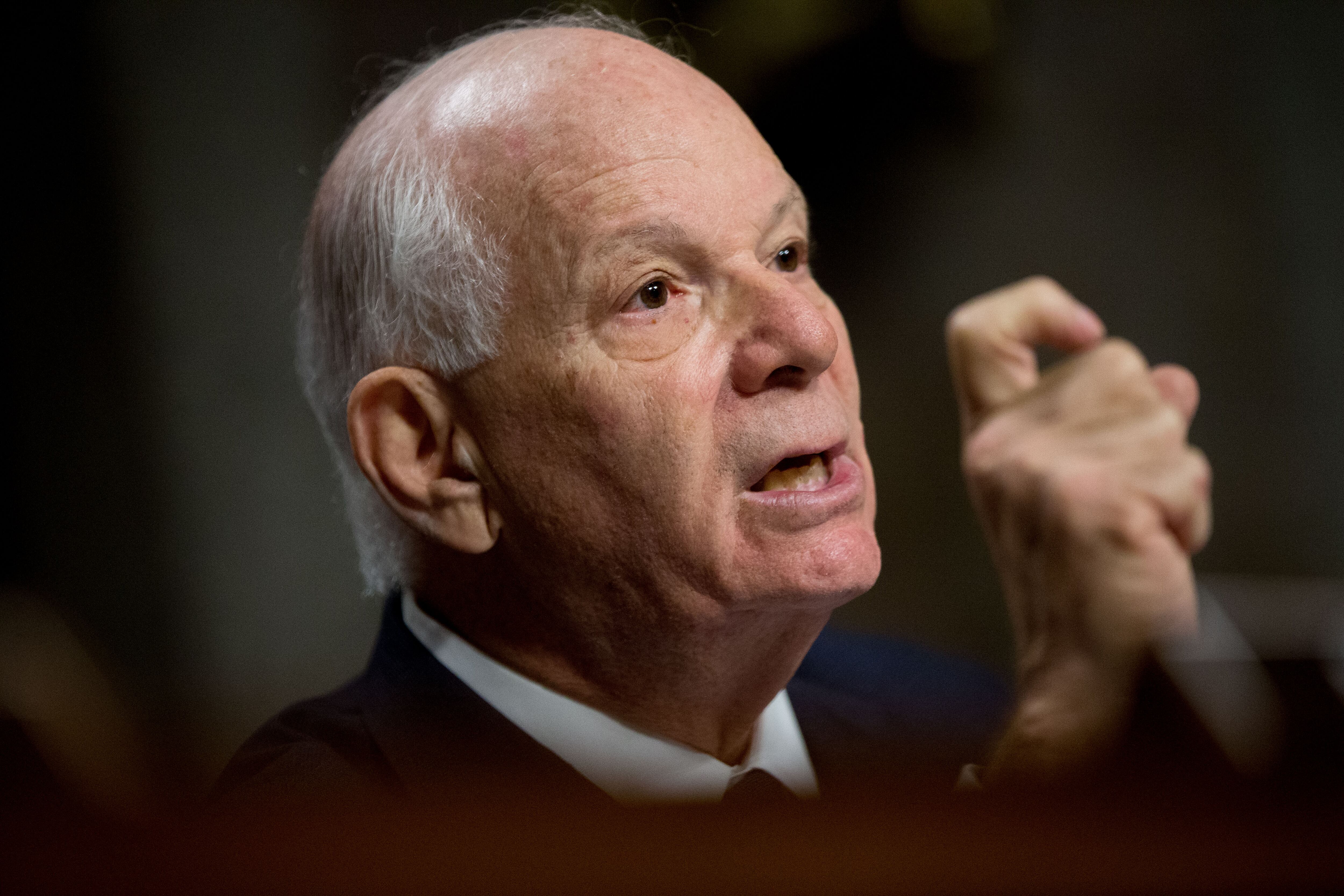WASHINGTON — A U.S. State Department nomination that should have been a victory lap for the Trump administration’s efforts to boost U.S. arms sales abroad instead has become caught up in a separate domestic controversy, likely for weeks to come.
Massachusetts Democratic Sen. Ed Markey has a “hold” on R. Clarke Cooper, who is nominated as the next assistant secretary of state for political-military affairs, until the Trump administration reverses a decision to permit an organization from posting blueprints online for 3D-printed guns.
Cooper would oversee State’s Directorate of Defense Trade Controls, which is at the center of legal action over the gun blueprints. Mainly, Cooper would be charged with linking the Defense Department with the State Department in areas such as international security, military operations and defense strategy (though industry watchers have dinged State for a 30 percent vacancy rate at the directorate).
Undersecretary for Arms Control and International Security Andrea Thompson, a former national security adviser to Vice President Mike Pence, was named in April, and other political appointees at the assistant secretary tier have been seated in recent weeks. Cooper would replace Tina Kaidanow, a career foreign service officer and the acting assistant secretary for political-military affairs.
A diplomat in the Bush administration and combat veteran, Cooper serves as director of intelligence planning for Joint Special Operations Command’s Joint Inter-Agency Task Force — National Capital Region, according to a White House biography. It’s not mentioned in the bio, but Cooper was chief of Log Cabin Republicans when it challenged the Pentagon’s “don’t ask, don’t tell” policies toward gay troops.
Aside from President Donald Trump’s personal support for international arms deals, his administration has in recent months rolled out new policies to emphasize the benefits of such sales to the U.S. economy: the Conventional Arms Transfer policy and others governing the international sale, transfer and subsequent use of U.S.-origin military and civil unmanned aerial systems.
American weapons sales have hit record highs in recent months. In the first two quarters of this fiscal year, the U.S. has signed $46.9 billion in weapons sales to foreign partners and allies, smashing past the $41.9 billion figure from all of fiscal 2017.
RELATED

At Cooper’s Aug. 1 confirmation hearing, Democrats fretted that human rights would get lost in the administration’s quest for deals, noting that the new Conventional Arms Transfer policy de-emphasized the human rights records of state recipients of U.S. security assistance.
“I want U.S. companies to be able to sell what they produce anywhere in the world, but when we sell it to an end user, a country, that uses it outside of internationally recognized standards and applicable law, that’s a problem because then we’re complicit in it,” said the Senate Foreign Relations Committee’s ranking member, Sen. Robert Menendez, D-N.J.
“Human rights are not just a nice gesture, they’re absolutely crucial to peace, justice and the spread of democracy, and therefore stability around the world. We have to ask why we as a nation — what we want America to be: a beacon of hope for the oppressed, or simply the biggest arms merchant to the world?”
For his part, Cooper testified that human rights are “a moral and legal obligation for us to consider” in security assistance decisions. “It is a component of every sale and every transfer, it is a broader consideration when we're looking at any activity that is representative of our security interest but also of our values,” he said.
Separately, congressional Democrats are pressuring Trump to reverse a decision to allow downloadable-gun promoter Defense Distributed to release blueprints to make untraceable and undetectable 3D-printed plastic guns.
A federal judge late last month stopped the company behind the plans after eight Democratic attorneys general filed a lawsuit seeking to block a settlement between the company and the Directorate of Defense Trade Controls that would allow the blueprints to be posted.
“I appreciate that you are not the person who made this policy, but you are asking us to confirm you to a position where you will be defending the indefensible,” Markey told Cooper at his confirmation hearing. “Until the president agrees to reverse this policy and prohibit the online publication of these dangerous blueprints a decision that is entirely within his authority I intend to place a hold on your nomination.”
A senator may place an informal hold on a nomination, blocking quick confirmation, but the decision to honor it will ultimately be up to Senate Majority Leader Mitch McConnell, R-Ky.
Joe Gould was the senior Pentagon reporter for Defense News, covering the intersection of national security policy, politics and the defense industry. He had previously served as Congress reporter.








